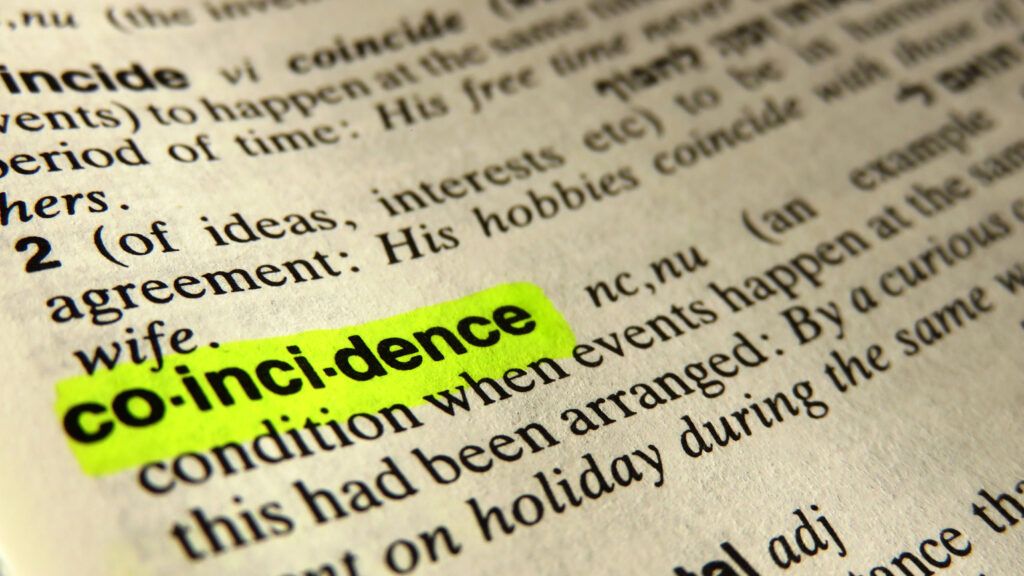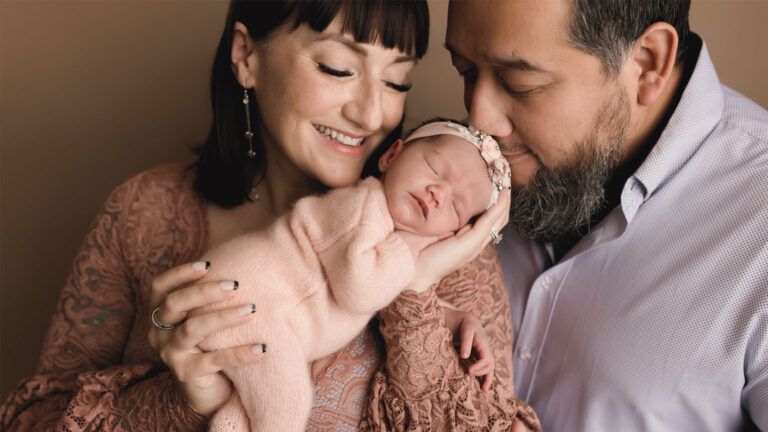In 2015, philosopher and author Sharon Hewitt Rawlette experienced a coincidence that changed the course of her career—and her life. But was it random chance or something more? Intrigued, she vowed to better understand the phenomenon behind her strange experience. She spent the next five years collecting accounts and reviewing research on coincidences. She compiled her research in her book, The Source and Significance of Coincidences.
We sat down with her for a conversation about coincidences, improbability, and the things that connect us all.
How would you define a coincidence?
For me, a coincidence is something that is not blatantly supernatural. It could be just chance. But there’s part of you that says, “This seems more meaningful than that.” And maybe just seems a little too improbable to be explained as chance. It seems too meaningful to you, personally, given where you are in your life. It’s something that makes you wonder, “Is there something more?”
And when is it something more?
I don’t think there’s a really cut and dry answer. There are a variety of factors that I look at in my own life when I’m trying to figure out whether something is just a coincidence or something more. One of those is how improbable it really is. Say, for example, you see a word on a sign. Yes, it might be meaningful to you, but you’ve seen so many signs and so many words. And it’s a common word. Then, it might just be chance. You have to consider how improbable it is that this event would happen right now. Right when you needed it.
But I also think an important element is how you feel about it. What is your intuition telling you? How strongly do you feel about it? And is it telling you something that really seems to help you emotionally? Spiritually? Is it providing you with guidance? You can interpret coincidences the way you interpret dreams. Because, when you have a dream, sometimes it really does seem like it’s a message from God. But there’s also some information in our dreams that’s just part of our subconscious life. And I think the same is true of coincidences. Some of them are signs from something greater, something outside of us. But some of them are just a reflection of our ability to see patterns in the world around us.
And how can you tell the difference between something that’s just a coincidence and a sign?
It comes down to improbability. I think the most impactful coincidences in people’s lives tend to be most improbable. It’s very hard to explain them away. But, the counterpart to that is that those coincidences also seem to have a very strong emotional impact on us. They’re not only very improbable—very strange—but they carry a very strong emotional weight. And we can’t escape that they’re significant somehow, even if we’re not exactly sure what the message is. And, often, they do turn out to be life-changing.
And are the emotions they illicit always positive?
Sometimes, the emotions are negative. But a lot of coincidences that seem to be negative, scary, that maybe make us sad, they’re trying to draw our attention to something in our emotional lives that is unpleasant, but that needs to be dealt with. That needs to be healed.
How do you determine the probability of a coincidence?
The first thing I would do is figure out what this coincidence is connecting to in your mental life. What is the significance? Then, determine how many different ways you could have seen something in your environment that would have connected to that in the same way. You’re trying to look at how similar the event is to the thought you had in your mind. And how likely it is that something similar would appear in your environment at the same time.
And how do you determine if a coincidence is significant?
Significance is about categorizing coincidences by the specific meaning they have for the person who experiences them. Coincidences that provide connection to other people. Coincidences that introduce us to new people in our lives. When we meet someone for the first time or are reunited with someone in an improbable way. Coincidences that bring us books or information at particularly important times—things that we’d been searching for that will miraculously appear just when we need it.
Coincidences that are there, primarily, for our spiritual growth. To help us learn something about ourselves and our relationship to God. Learn how to love in new ways or learn not to fear certain things in our lives. Our spirit is expanded by the way those experiences influence us.
Do these coincidences have any similarities?
The biggest commonality is that they tend to create healing in people’s lives. It’s not always obvious at first, but, in the long run, they tend to have a positive impact on people’s lives.
Another really common feature is confusion. A feeling of not fully understanding what has happened. There’s always a level of mystery to it. There’s always this sense that there’s something more going on than we’re able to rationally grasp, pulling us to something that we can’t quite express. Something more.
This world is ultimately a spiritual one, I believe. We’re exploring, learning more about that spiritual underpinning that happens all around us.
And what advice would you give someone looking for more coincidences in their lives?
I think one of the most important things, when you experience a coincidence, is to keep an open mind about where it’s coming from and what it might mean. Because it’s very easy to try to fit a coincidence into the way of thinking about the world that we already have—whatever our worldview is. And coincidences generally come into our lives to expand that worldview. They generally won’t fit neatly into the boxes that we have. We might try to shove them in there, so we can stop thinking about it and make them less mysterious, but they generally are going to make us question some things that we thought we knew about the world.
Because I once had a pretty limiting view of God. Growing up, I had a very judgmental view of God. I constantly thought I was disappointing him in some way. And one of the great things coincidences have done for me over the years is to reassure me that that’s not how God thinks of me. God is a loving God and wants to reassure me that he’s there and taking care of me. He’s aware of the struggles I’m going through and helping me through all of it. I think that’s the greatest gift I’ve received from coincidences—changing my view of God to a more positive, welcoming, generous one.






